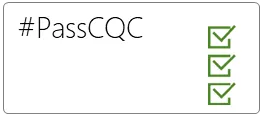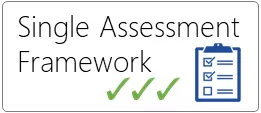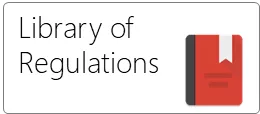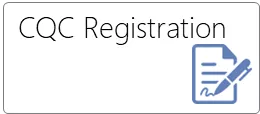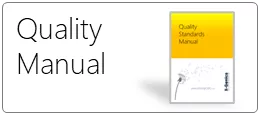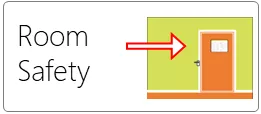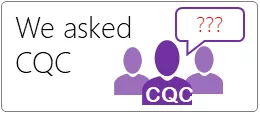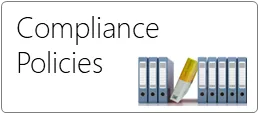There are 3 types of Duty of Candour, two are optional/Best Practice, and one requires reporting
Basic Principles
In simple terms, this is a duty for organisations to be honest and open with people in their care when things go wrong.
When mistakes are made, especially the more serious ones, fear of consequences drives the natural urge to hide things and cover up, to avoid bad consequences. With staff, this is often the fear of losing their job and reputation among fellow staff, and for organisations it may be the fear of bad publicity, loss of contracts, and regulatory action.
To err is human, everyone makes mistakes. A culture of openness and a blame free culture becomes a learning opportunity and makes staff more confident in admitting mistakes and working to improve systems and processes.
Open disclosure
When an incident of concern occurs, there should be transparency and openness in disclosing this to the person, their family and maybe other stakeholders in the fullest terms possible. This would take the form of what happened; how we handled it; how we protected the person; and prevention measures.
Conflicts can occur with data protections requirements and breach of confidentiality, and it is important to exercise care in disclosing any confidential or sensitive information, particularly medical information.
An apology is not an admission of fault and goes a long way to reducing tensions and promoting trust in the relationship.
Statutory Vs Professional
There are two types of Duty of Candour
- Statutory: This is the legal requirement to report serious and untoward incidents, such as death and severe harm and clearly specified in the regulation. This has a higher threshold and is appropriate only where serious harm has occurred
- Professional/Ethical: Most professional bodies have set out codes of conduct that any incident should be subject to a Duty of Candour, even if it has not resulted in serious harm. This has a much lower threshold, and covers any unexpected incident that is of concern or causes harm or distress
Professional codes of conduct
Some of the organisation that have set a code of conduct on Duty of Candour
- General Medical Council
- General Pharmaceutical Council
- General Dental Council
- General Optical Council
- Social work England
- Nursing and Midwifery Council
- Health & Care Professions Council
The Health & Care Professions Council covers a range of members, not necessarily bound by CQC Regulations, including Scientists, Paramedics; Psychologists, Therapists, all of whom follow similar standards.
Duty of candour - Best Practice
Professional & Ethical codes of conduct have set a high standard of best practice and established a common standard amongst professional bodies.
All Providers whether in Healthcare or Adult Social Care setting have the same common duty of care towards people in their care and obliged to seek out best practice in care from all professions.
CQC Guidelines make specific reference that Providers must follow best practice, and therefore adopting "Professional & Ethical Duty of Candour" in effect can be seen as a requirement to comply with KLOEs.
The core purpose of Duty of Candour
The intention of the duty of candour legislation is to ensure that providers are open and transparent with people who use services. It sets out some specific requirements providers must follow when things go wrong with care and treatment, including informing people about the incident, providing reasonable support, providing truthful information and an apology when things go wrong.
Notifiable Incident – criteria
A notifiable safety incident must meet all 3 of the following criteria:
- It must have been unintended or unexpected.
- It must have occurred during the provision of a regulated activity
- In the reasonable opinion of a healthcare professional, already has, or might, result in death, or severe or moderate harm to the person receiving care.
Even if something does not qualify as a notifiable safety incident, there is always an overarching duty of candour to be open and transparent with people using services.
Notifiable safety incident – Health Service Body
A health service body is an NHS Trust or NHS Foundation Trust
The incident: Any unintended or unexpected incident in respect of a service user during the provision of a regulated activity that, could or appears to have resulted in Service user suffering any of these below:
- Death as a result of the incident, or
- Severe harm, moderate harm or prolonged psychological harm to the service user
Notifiable safety incident – Other Services
Any unintended or unexpected incident that appears to have resulted in the Service user suffering any of these below:
- Death as a result of the incident
- Impairment of the sensory, motor or intellectual functions, which has or likely to last, for a continuous period of at least 28 days
- Changes to the structure of the service user's body
- Prolonged pain or prolonged psychological harm
- Shortening of the life expectancy of the service user
Or, where the Service User requires treatment by a health care professional in order to prevent:
- Death of the service user, or
- Any injury which, if left untreated, would lead to one or more of the outcomes mentioned above
Definition of Harm
Moderate harm:
Harm that requires a moderate increase in treatment and significant, but not permanent, harm.
Severe harm:
A permanent lessening of bodily, sensory, motor, physiologic or intellectual functions, including removal of the wrong limb or organ or brain damage, that is related directly to the incident and not related to the natural course of the service user's illness or underlying condition.
Moderate increase in treatment:
An unplanned return to surgery, an unplanned re-admission, a prolonged episode of care, extra time in hospital or as an outpatient, cancelling of treatment, or transfer to another treatment area (such as intensive care)
Prolonged pain:
Pain which a service user has experienced, or is likely to experience, for a continuous period of at least 28 days.
Prolonged psychological harm:
Psychological harm which a service user has experienced, or is likely to experience, for a continuous period of at least 28 days.
Reporting an Incident
- You must act promptly
- You must liaise with the person harmed or someone acting for them
- Support the persons harmed and those who act for them
- Involve family members if consent is given
- Keep detailed records of actions and outcomes
NOTE: There are specific procedures to follow depending on the type of incident being reported
- The obligations associated with the statutory duty of candour are contained in regulation 20 of The Health and Social Care Act 2008 (Regulated Activities) Regulations 2014.
- It is imposed on the organisation, not on individuals and it is a criminal offence if you don't comply.
The key principles:
- Care organisations have a general duty to act in an open and transparent way in relation to care provided to persons. This means that an open and honest culture must exist throughout an organisation.
- The statutory duty applies to organisations, not individuals, though it is clear from CQC guidance that it is expected that an organisation's staff cooperate with it to ensure the obligation is met.
- As soon as is reasonably practicable after a notifiable care safety incident occurs, the organisation must tell the person (or their representative) about it in person.
- The organisation has to give the person a full explanation of what is known at the time, including what further enquiries will be carried out. Organisations must also provide an apology and keep a written record of the notification to the person.
- A notifiable safety incident has a specific statutory meaning
- There is a statutory duty to provide reasonable support to the person. Reasonable support could be providing an interpreter to ensure discussions are understood, or giving emotional support to the person following a notifiable safety incident.
- Once the they have been told in person about the notifiable safety incident, the organisation must provide them with a written note of the discussion, and copies of correspondence must be kept.
Members of Professional Bodies
If you are a member of a professional body, this might affect you both as an individual and your organisation as a whole. You may be accountable to your body as a member and your organisation responsible to the regulatory body.



